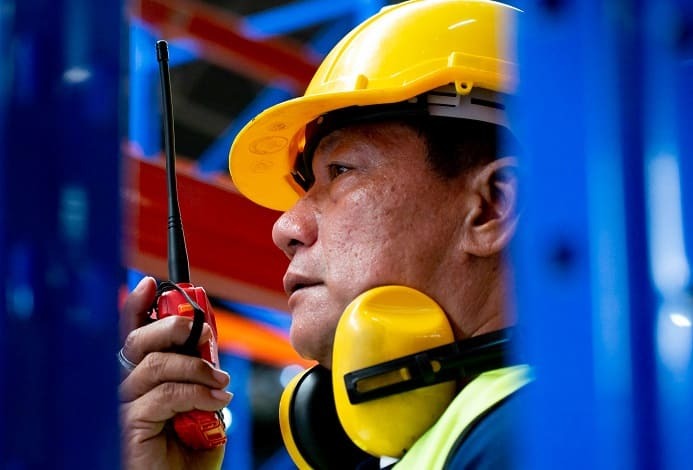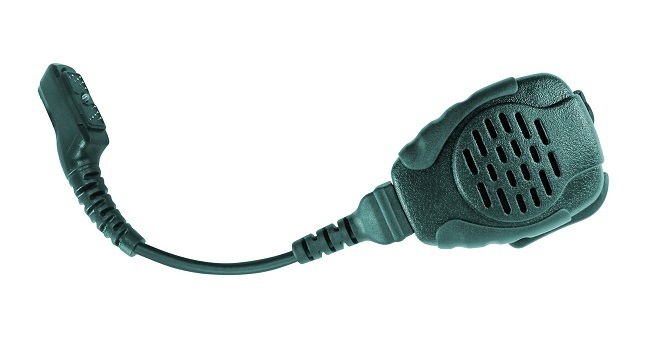
 Data Structure
Data Structure Networking
Networking RDBMS
RDBMS Operating System
Operating System Java
Java MS Excel
MS Excel iOS
iOS HTML
HTML CSS
CSS Android
Android Python
Python C Programming
C Programming C++
C++ C#
C# MongoDB
MongoDB MySQL
MySQL Javascript
Javascript PHP
PHP
- Selected Reading
- UPSC IAS Exams Notes
- Developer's Best Practices
- Questions and Answers
- Effective Resume Writing
- HR Interview Questions
- Computer Glossary
- Who is Who
What is the full form of LMR?
Introduction
Land Mobile Radio (LMR), sometimes referred to as "land mobile communications," is a two-way radio service that covers a large region and enables voice and data transmission. It complies with governmental rules on radio frequencies and covers both industrial usage and public safety.

Base stations housed in communication towers, mobile or handheld devices with transmitting and receiving capabilities, base station-based control equipment, repeaters for signal range extension, and talkgroups for connecting with people you need to reach are just a few of the parts that make up LMR systems. Together, these parts create a thorough network that is intended to enable dependable communication between users in various places.
The capacity of LMR to deliver secure communications across wide geographic regions while adhering to strict rules on radio spectrum utilisation sets it apart from other technologies. In comparison to other radio technologies, LMR also offers better call quality, guaranteeing that users may hear each other well even when they are far apart. This makes it perfect for crucial tasks like managing vehicle fleets or planning search and rescue operations.
Applications
For the sectors that require it the most, LMRs offer dependable, secure, and strictly controlled communication.
For instance, first responder agencies like the police, fire departments, and emergency medical services frequently utilise LMRs to communicate with dispatch teams. This makes it possible to guarantee that the appropriate people is quickly reacting to the appropriate situation.
Additionally, a lot of transportation firms, including fleet operators for the trucking and bus industries, rely on LMRs to maintain a secure channel of communication for interaction between drivers and dispatchers. This shortens the time it takes to respond to customer care requests while also keeping vehicles safe on the road.
And last, LMRs are often used by companies of all sizes for their private communication requirements. Businesses may be certain that their discussions stay private when utilising an LMR system since it is possible to build up private networks and strictly regulate access.
Overall, it is simple to understand why so many sectors rely on Land Mobile Radio systems to meet their demands for dependable communication. Every day, this potent technology demonstrates its value to organisations across many sectors, from first responders to transportation providers.
Components
Base stations, repeater systems, mobile radios, and handheld radios are just a few examples of the various parts that LMR can have. Let's investigate in greater depth.
Base stations are fixed-site devices that can receive and send messages from portable and mobile radios across the coverage area. In other words, these are the systems in charge of broadcast transmission and reception.
These base station signals have a finite range, thus repeater systems operate as an amplifier to increase radio coverage. Users inside a base station's range benefit from an extended voice communication range as a result.
As previously indicated, mobile and portable radios are crucial parts of LMR systems since they enable connection with base stations without the need for any actual cables. These wireless radios make it possible for cars to communicate with one another on roadways over great distances or, if necessary, even inside a single building.
Advantages
Using Land Mobile Radio (LMR) provides a number of significant benefits. LMR technology has certain distinct advantages over mobile phone technology for businesses that require dependable radios for long distances, in remote locations, and in harsh environments.

The following are a handful of LMR's most significant benefits
Because they require less maintenance and have a longer lifespan than telephones, LMR systems are often less expensive and more affordable over time. An LMR system, for instance, may survive 5 to 7 years on average, but a mobile phone would only last 1-2 years. This makes it a great option for companies trying to reduce their communication costs.
Unlike LMR systems, cellphones can lose service and don't always communicate clearly. To assist assure continuous connectivity in outlying locations and severe settings, LMR networks are sometimes supported by many towers in the same location. It is therefore perfect for radio users who must always be in contact.
Security should always be considered when designing a communication system, and LMR offers certain important encryption methods that other forms of communication do not. As a result, the security of data during transmission and the restriction of access to communication channels to permitted parties are ensured.
Conclusion
In conclusion, Land Mobile Radio (LMR) provides a reliable and secure communication system that may be used for a range of functions, including public safety and applications in the commercial sector. Because of its widespread use and many features, it is a crucial tool for navigating the complex communication environment of today. Whether you work for a commercial enterprise or a governmental organisation, LMR provides a reliable and inexpensive choice for your communication requirements.
FAQs
Q1. LMR systems possess a licence.
Ans: Yes, in order to operate on particular frequencies, LMR systems frequently need licences from regulatory bodies. Through licencing, effective spectrum use is ensured, and interference with other communication systems using the same frequency bands is reduced.
Q2. What are the LMR systems' prospects?
Ans: As technology develops, LMR systems continue to change. The introduction of broadband technologies like Long-Term Evolution (LTE) to supplement current LMR systems is a part of the LMR's future. Broadband and LMR networks coming together offers enhanced capabilities, including integration with cutting-edge apps and multimedia communication.
Q3. Can data be sent using LMR systems?
Ans: Modern digital LMR systems are capable of supporting data transfer in addition to voice communication, which is the primary focus of LMR systems. This makes it possible for users to communicate with one another via text messages, GPS coordinates, and other data, improving operational effectiveness and situational awareness.

